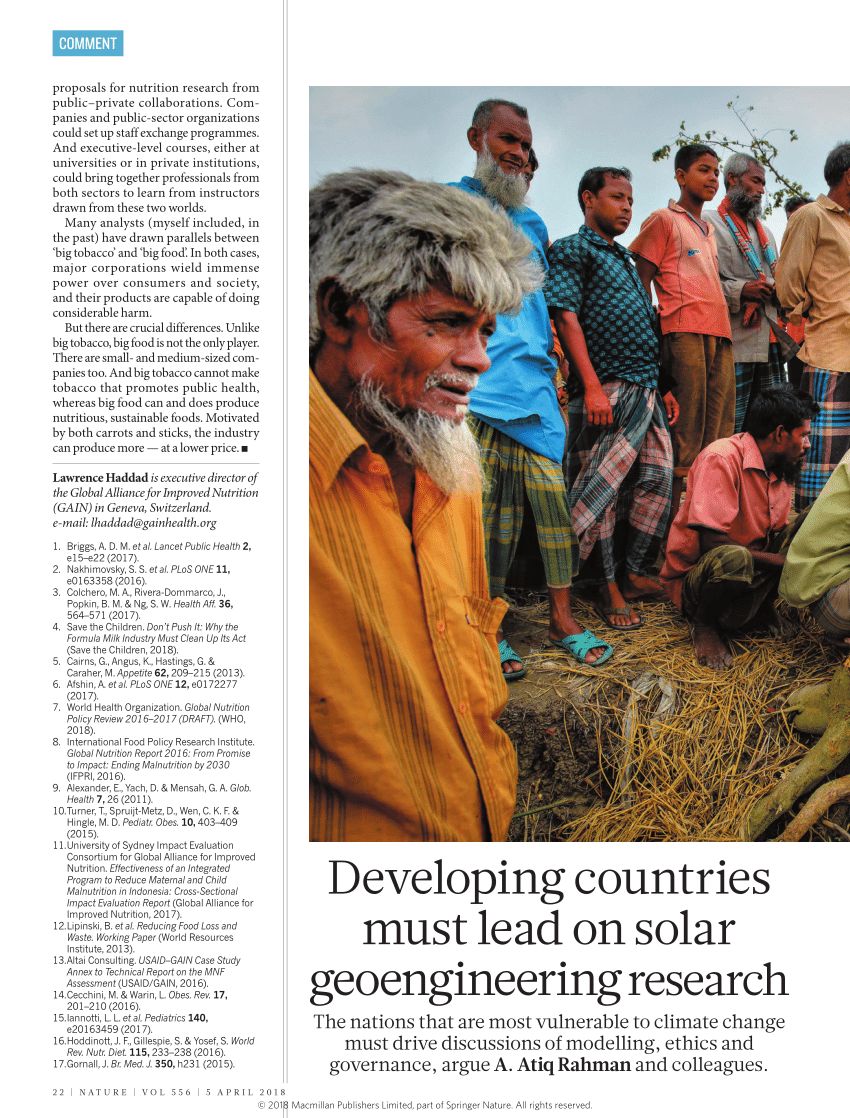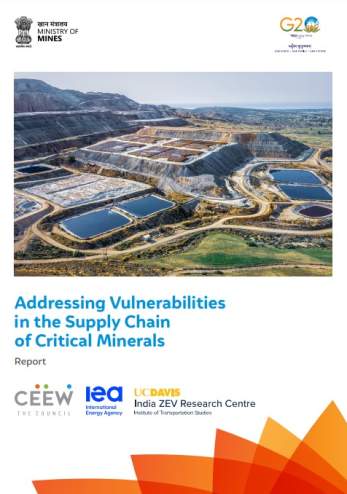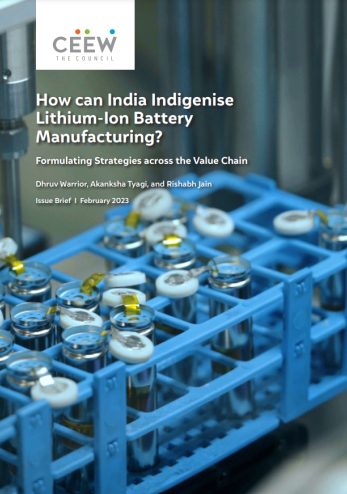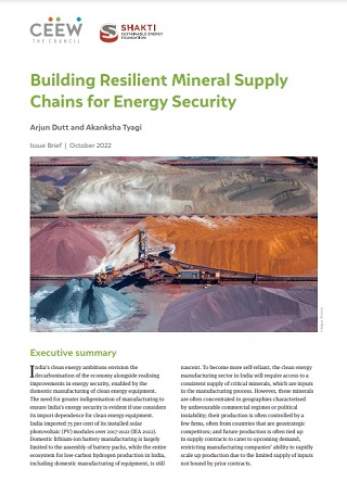Other Publications
Developing Countries Must Lead on Solar Geoengineering Research
A. Atiq Rahman, Paulo Artaxo, Asfawossen Asrat and Andy Parker
April 2018 | Technology Futures
Suggested Citation: Rahman, A. Atiq, Paulo Artaxo, Asfawossen Asrat, and Andy Parker. 2018. "Developing countries must lead on solar geoengineering research." Nature, 556: 22-24. https://doi.org/10.1038/d41586-018-03917-8
Overview
This paper argues that the nations that are most vulnerable to climate change must drive discussions of modelling, ethics and governance. It discusses solar geoengineering as a potential technology that might reduce many of the worst effects of climate change if deployed in moderation. Further, it proposes a way forward for developing countries to engage in relevant research and make an informed decision on the use of this technology.
Key Highlights
- Despite having emitted very little greenhouse gas themselves, the world’s least-developed countries and small-island states demanded that the 2015 Paris climate agreement require warming to be kept “well below” 2 °C, and that a 1.5 °C limit should also be explored.
- But there is a limit to what populations threatened by sea-level rise, biodiversity loss, droughts and hurricanes can do. Mitigation of climate change is crucial. Adaptation is therefore essential.
- As solar geoengineering is being discussed as a way to cool the climate faster, developing countries must maintain their climate leadership and play a central part in research and discussions around solar geoengineering.
- The overall effects of solar geoengineering are uncertain. All studies so far are based on computer simulations, which are poor at forecasting regional climates.
- Currently, well-heeled universities of Europe and North America are leading solar geoengineering research. Unless that changes, voices from the global north will set the policy agenda and decide which research projects should be accelerated or shut down.
Key Recommendations
- Local scientists in developing countries should collaborate to conduct research that is sensitive to regional concerns and conditions.
- Governments, universities, and civil society worldwide should support outreach and research in the developing world.
- Research funders in advanced economies should fund collaborations with scientists in developing countries.
- The IPCC should produce a special report on the risks and benefits of solar geoengineering.
- Form a coordinated global research initiative — perhaps under an organisation such as the World Climate Research Programme — to promote collaborative science on this controversial issue.
Developing countries must be in a position to make up their own minds on solar geoengineering research. Local scientists, in collaboration with others, need to conduct research that is sensitive to regional concerns and conditions.








